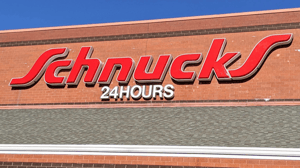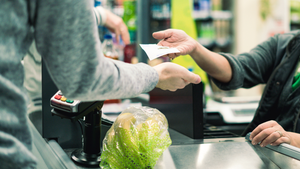Global food retailers join coalition to slash rate of food waste
Walmart, Kroger, Ahold Delhaize take part in 10x20x30 initiative
September 26, 2019

This week, some of the world’s biggest food retailers announced their participation in 10x20x30, a global effort to halve food loss and waste by 2030.
Under the initiative, founding partners Walmart, Kroger, Ahold Delhaize, Metro AG, Tesco, Pick n Pay, The Savola Group, Sodexo, IKEA Food and Aeon will each engage with 20 of their top suppliers to cut down on food waste.
Participants include five of the globe’s 10 largest food retailers, the world’s second-largest foodservice provider, and leading food retailers in regions such as southern Africa and the Middle East. Combined, the participants operate in more than 80 countries.
“Food loss and waste is a massive global challenge. While addressing this challenge is a priority for us, 10x20x30 is built on the fact that no one company can address this challenge alone,” Laura Phillips, senior vice president of sustainability at Walmart, said in a statement. “With 10x20x30, retailers work to reduce in-store food loss and waste as well as support their upstream suppliers to reduce their own loss and waste.”
Launched by Champions 12.3, a coalition of industry executives and government and civic leaders, 10x20x30 is expected to advance the United Nations’ Sustainable Development Goal (SDG) Target 12.3, which seeks a 50% reduction in food loss and waste by 2030 worldwide, according the World Resources Institute (WRI), co-secretariat of the group.
In joining 10x20x30, Ahold Delhaize raised its initial goal — announced in 2016 — to cut 20% of its food waste by 2020 to 50% by 2030. The Zaandam, Netherlands-based company’s global food retail businesses include five supermarket chains and online grocer Peapod in the United States.
“Reducing food waste in our stores and distribution chain is the right thing for our business, for the climate and for improving food security. We join this exciting initiative to support momentum across our industry and create new innovations for reducing waste in partnership with suppliers,” commented Frans Muller (left), President and CEO of Ahold Delhaize.
Ahold Delhaize said its U.S. and European brands have made a range of changes to reduce food waste in their operations, such as improving technology for store ordering and developing partnerships with local communities to donate unsold food to people in need. With the higher waste reduction target, the company noted that it will accelerate partnerships and innovations in areas such as packaging, discounting, fresh quality analysis and smarter logistics.
“Wasting less food is critical to conserving natural resources and improving food security,” said Megan Hellstedt, vice president of sustainable retailing for Ahold Delhaize. “We have identified improvements to make in our own operations for the coming years and will ask our key suppliers to do the same.”
Worldwide, an estimated one-third of food is lost or wasted, accounting for $940 billion annually as well as resulting in significant economic, environmental and food security impacts and 8% of global greenhouse gas emissions, WRI reported. As more than 1 billion tons of food is lost or wasted, one in nine people are undernourished.
"Kroger’s Zero Hunger|Zero Waste social impact plan is our commitment to end hunger in our communities and eliminate waste across our company. 10x20x30 aligns perfectly with our bold plan and our target to achieve zero food waste in Kroger supermarkets by 2025,” commented Jessica Adelman, group vice president of corporate affairs and chief social impact officer at The Kroger Co. “We are pleased to sign on to this important work and engage our suppliers and partners in our journey to creating communities free of hunger and waste.”
WRI said recent research from the institute and its partners identified the need for a private-sector initiative to hit the 50% food loss and waste reduction target. To that end, 10x20x30 calls on food retailers and food providers collaborate with their suppliers.
“The latest research from Champions 12.3 is clear: We need to see more companies targeting, measuring and acting on food waste and publishing food waste data if the world is to deliver Sustainable Development Goal 12.3 and halve food waste by 2030,” stated Dave Lewis, chairman of Champions 12.3 and group chief executive of Tesco. “10x20x30 is a clear opportunity for companies to work in partnership with hundreds of food suppliers to tackle food waste from farm to fork.”
About the Author
You May Also Like






